themeistersinger
Footballguy
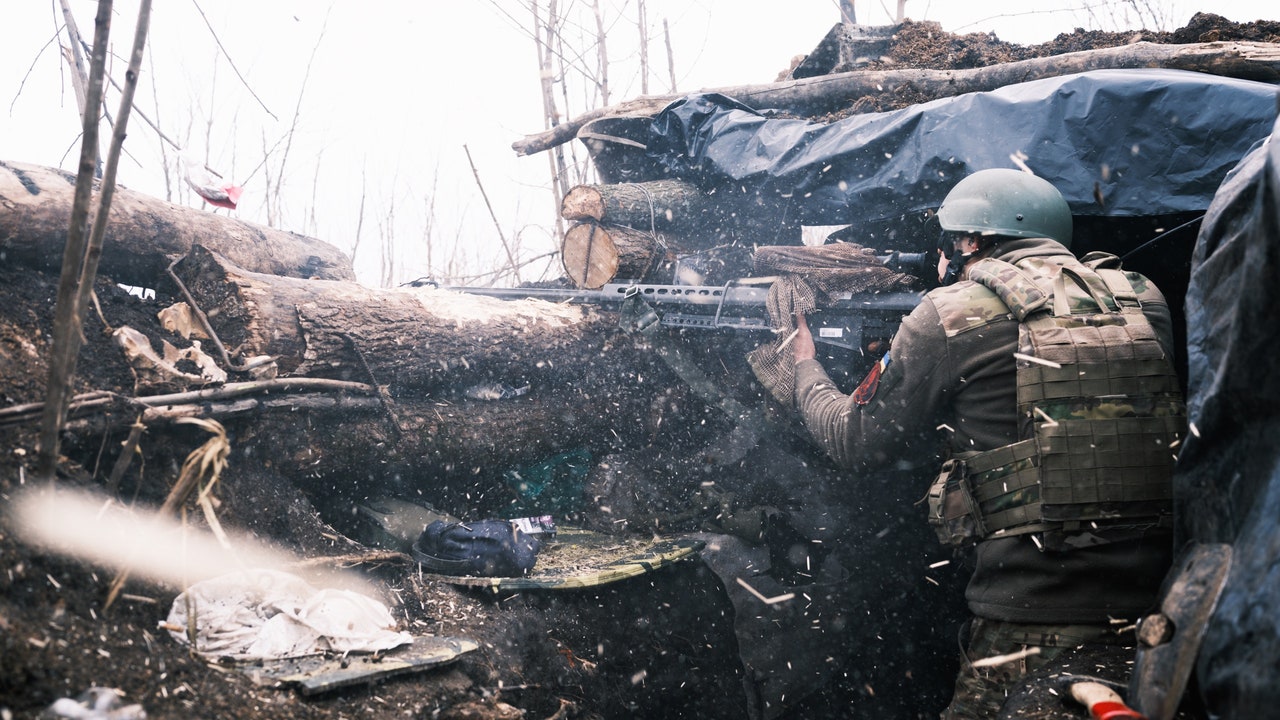
Two Weeks at the Front in Ukraine
In the trenches in the Donbas, infantrymen face unrelenting horrors, from missiles to grenades to helicopter fire.

So I just read back through the first page of this thread to regain my sense of how this got started.This is what is fascinating and concerning me. Are we really going to see one nation try to completely take over another?I'm aware that eastern Ukraine has a heavily Russian heritage, but it still seems somewhat surreal to think about a major power attacking another nation like this. I guess our world hasn't moved past that.
We haven't seen that since Iraq tried to take Kuwait. Ukraine is a lot bigger and more powerful than Kuwait was and I feel like the world will step in on Russia if they really try it. Maybe not WW3, but a lot bigger clash than we've seen in my 44 year lifetime. Maybe the Korean War would be a more apt comparison?
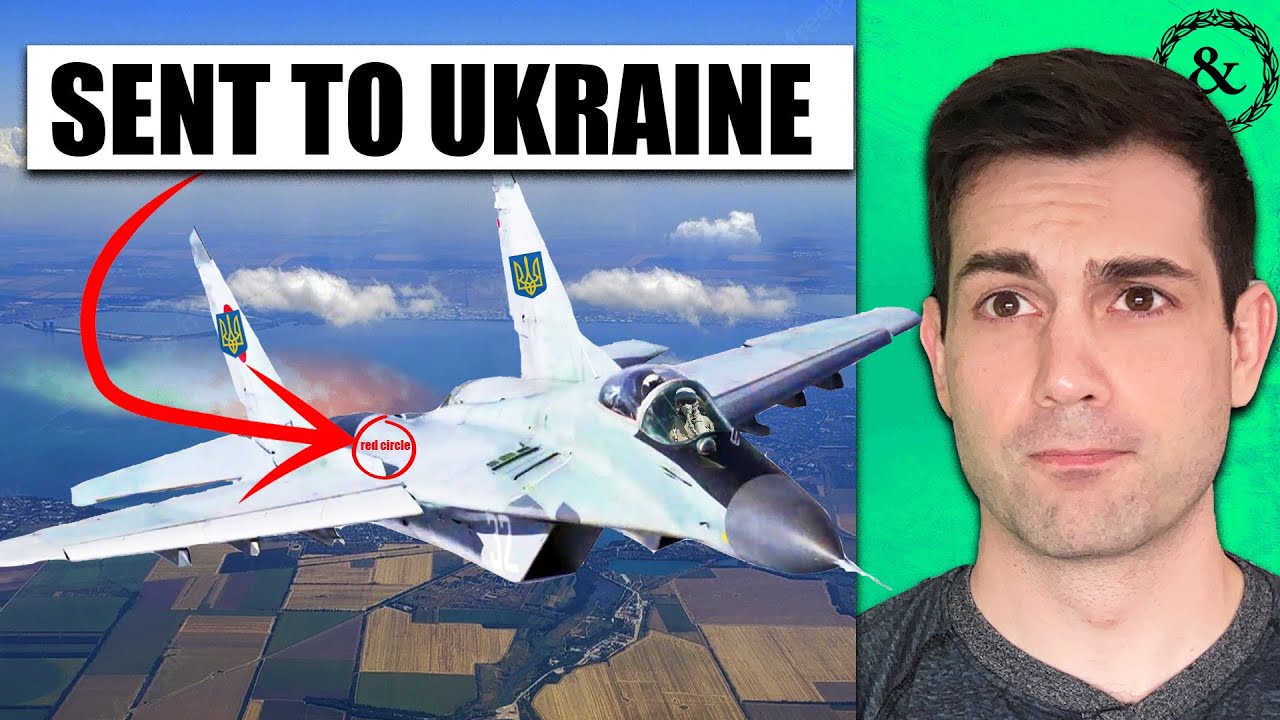
Monday, two Ukraine-backed Russian partisan groups, the Freedom of Russia Legion and the Russian Volunteer Corps, invaded Russia. According to numerous reports, the groups took control of at least five border settlements and battled with Russian security forces. These two Russian-dissident battle groups can muster over 10,000 men. How many are involved in the operation is anyone’s guess. The fighting is continuing today. This is not the first such attack; in March, the same Ukrainian-controlled Russian forces invaded the neighboring Bryansk Oblast (Putin’s War, Week 54. More NordStream Melodrama, Russia Shows Diplomatic Weakness, and the Bakhmut Flipflop). However, it is the largest attack on Russian territory since Russia’s 2014 invasion of Ukraine.
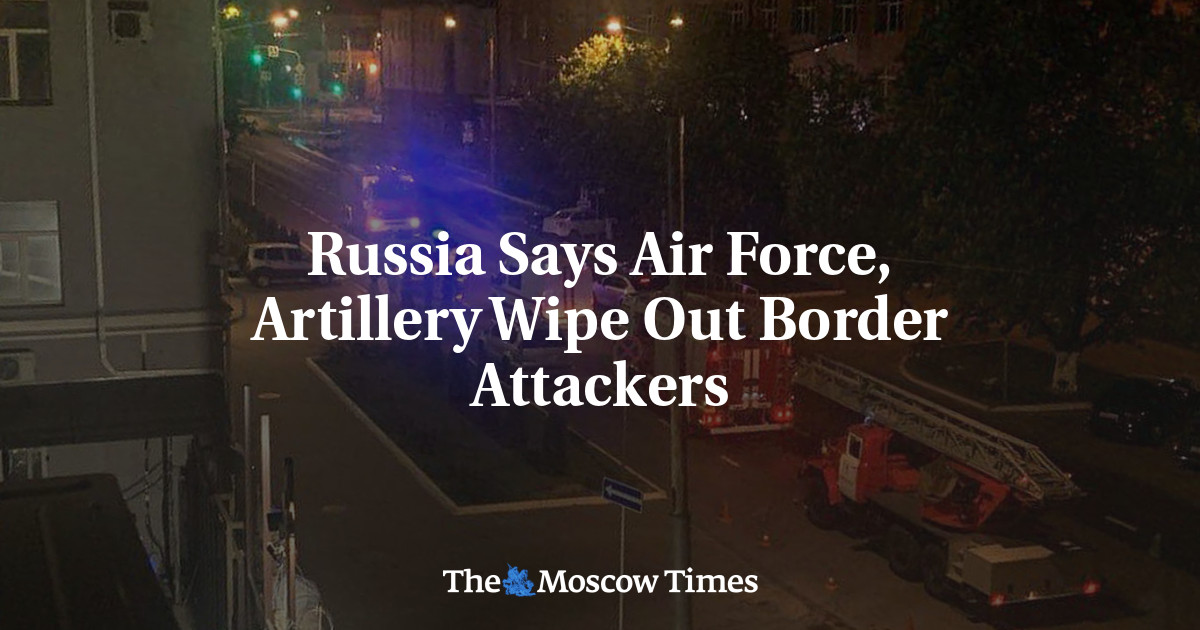
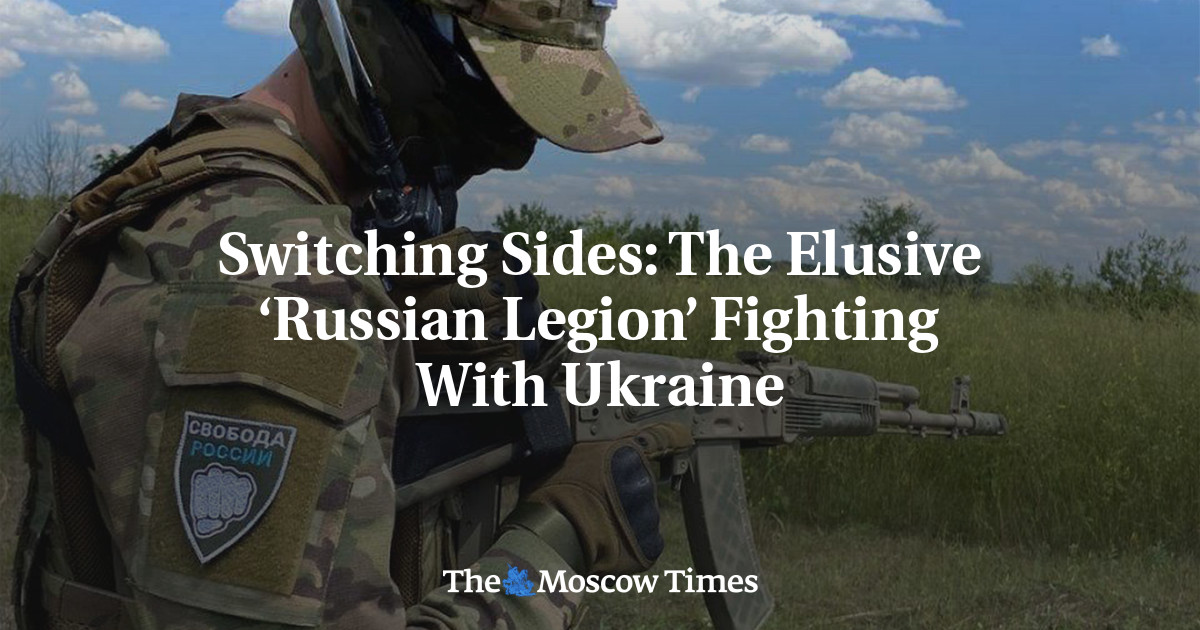
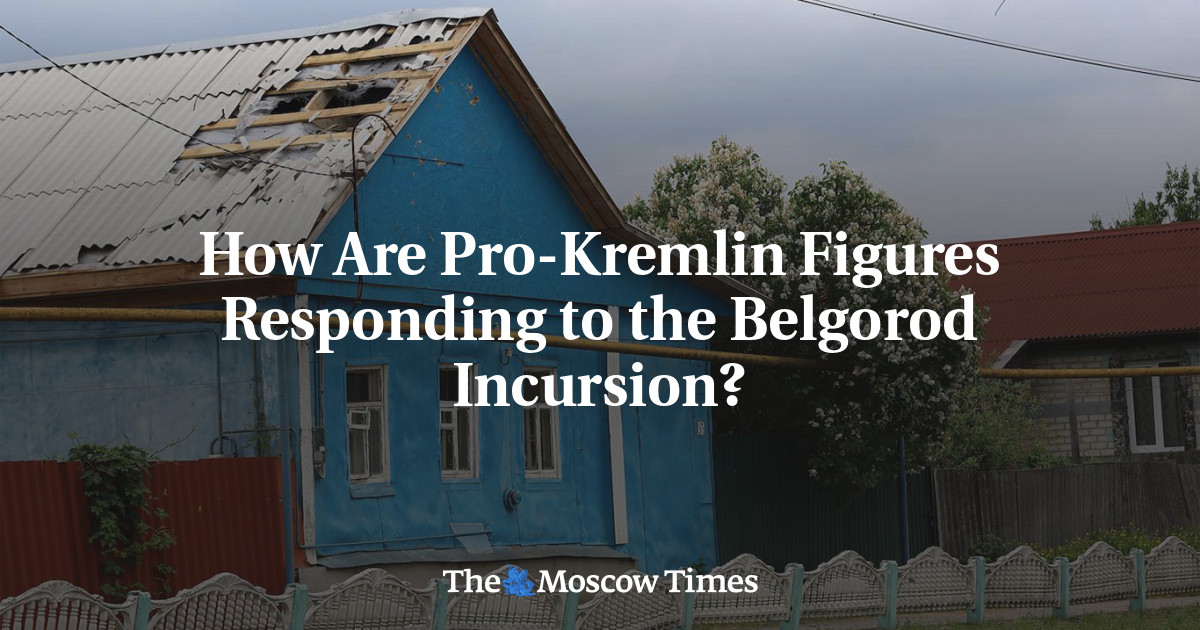
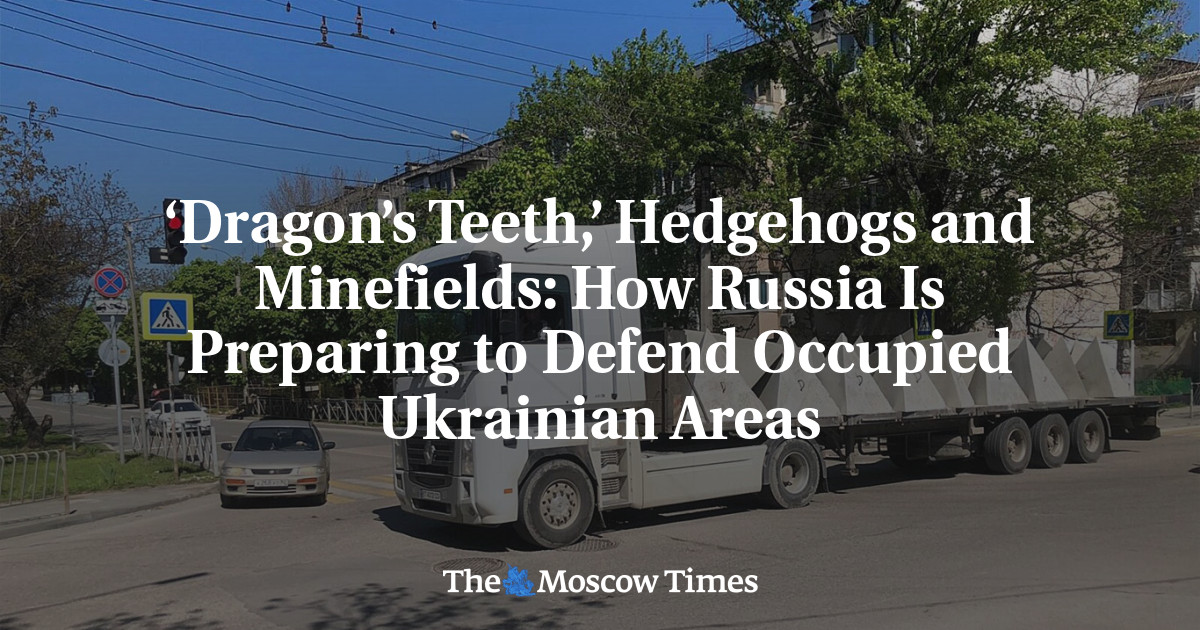
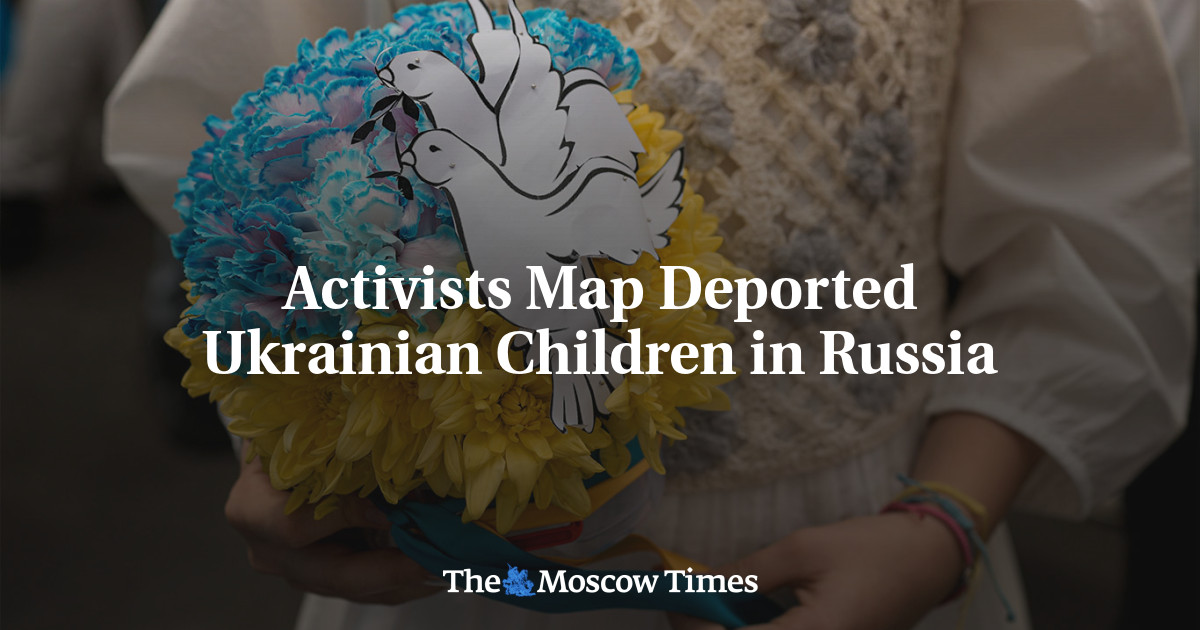
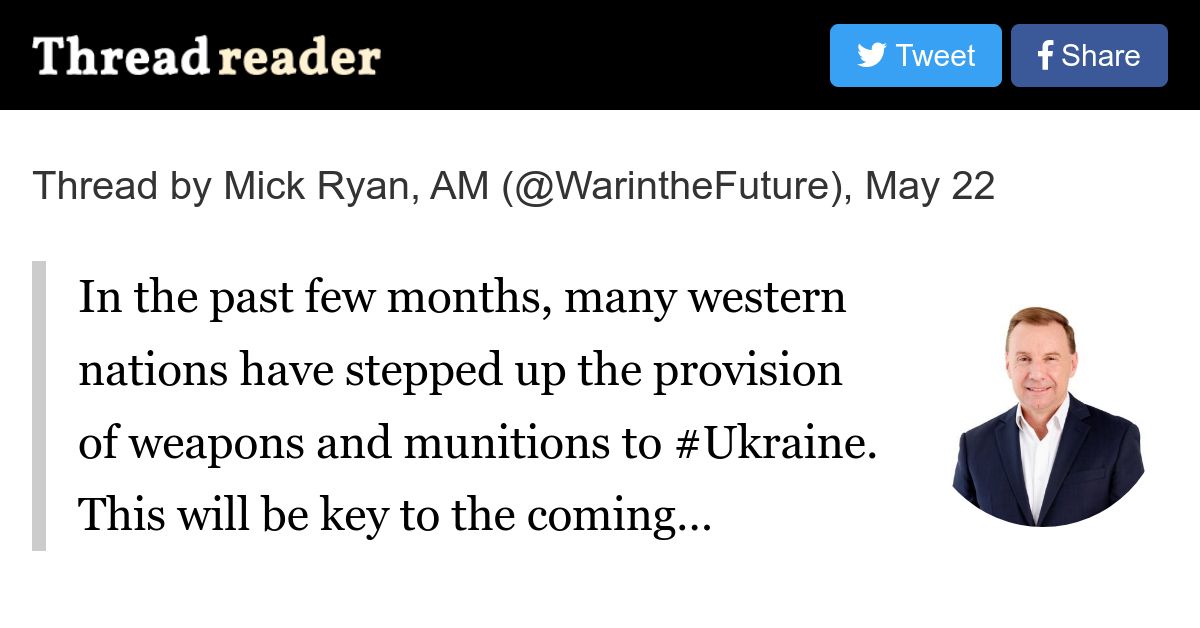
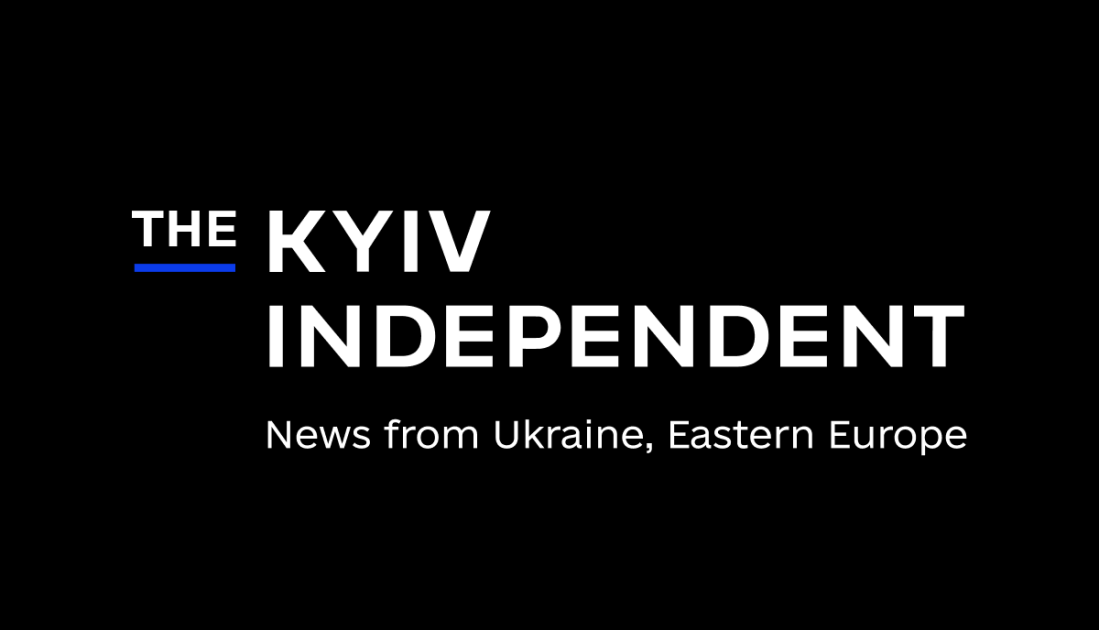
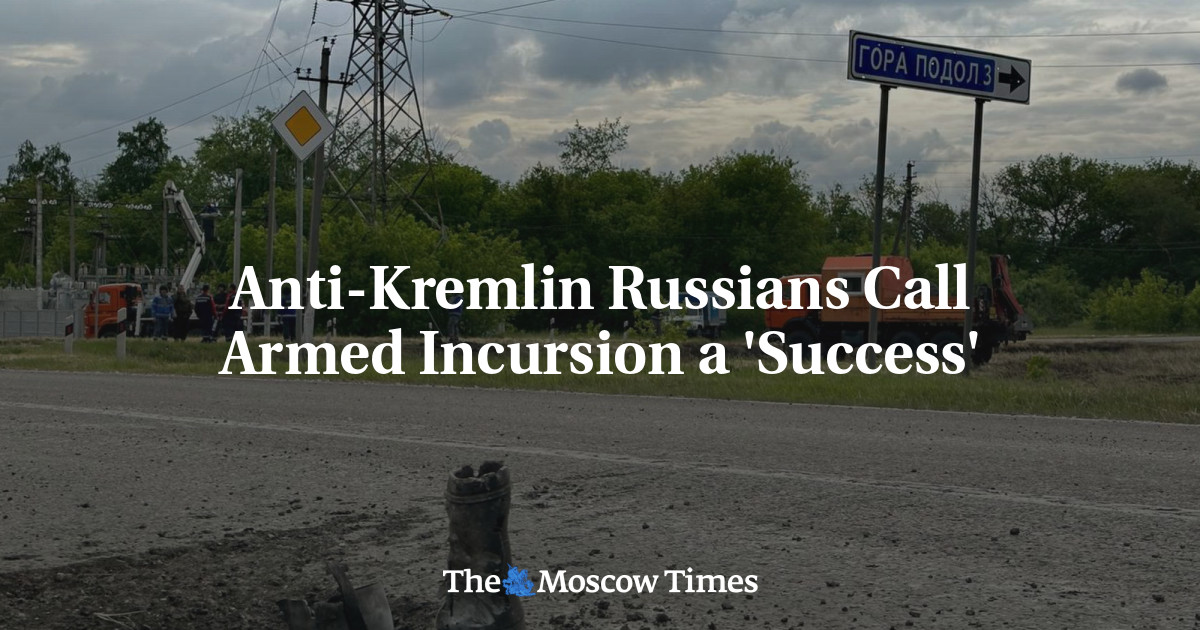
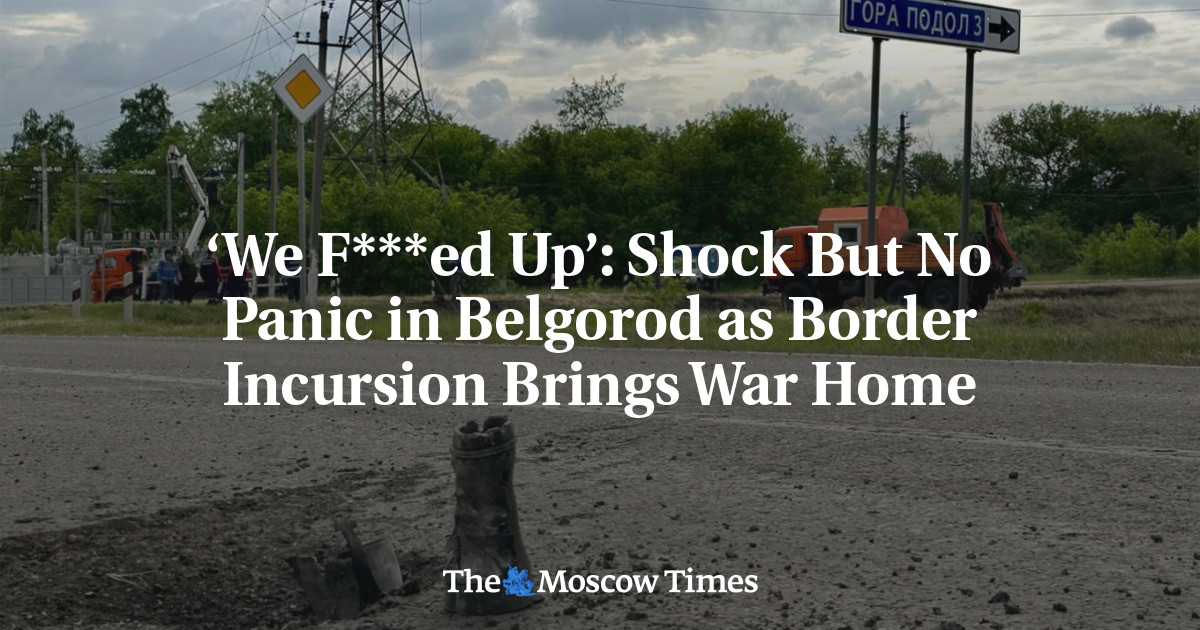
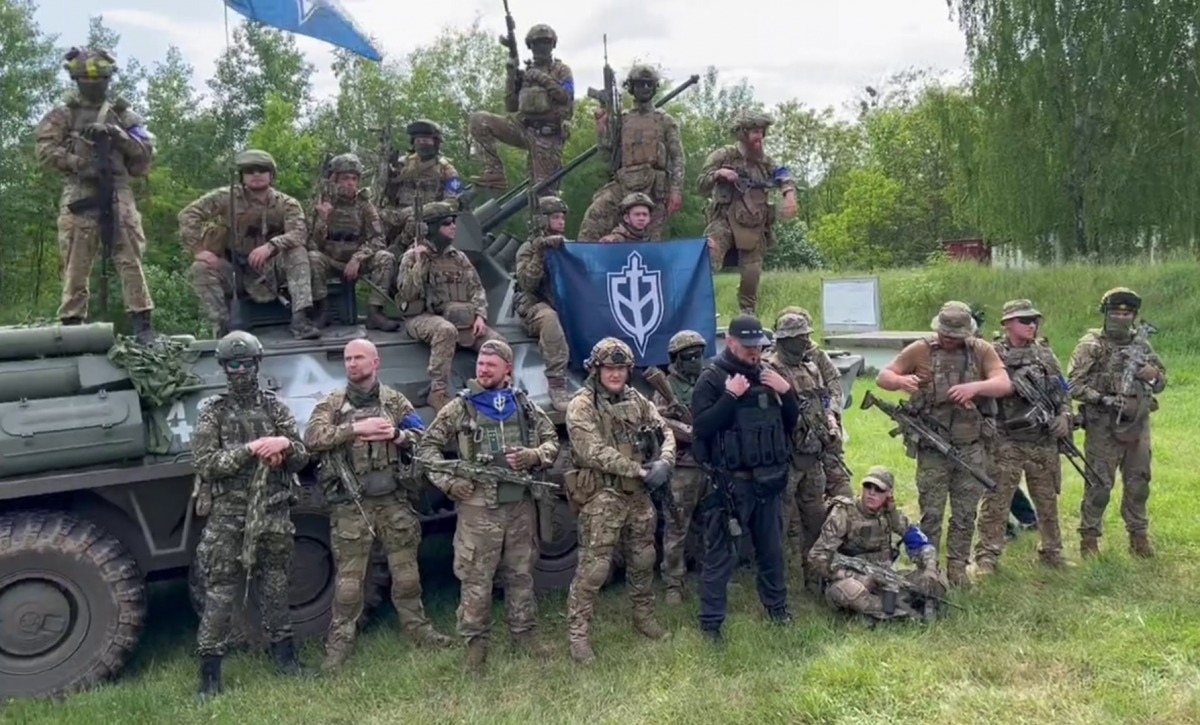
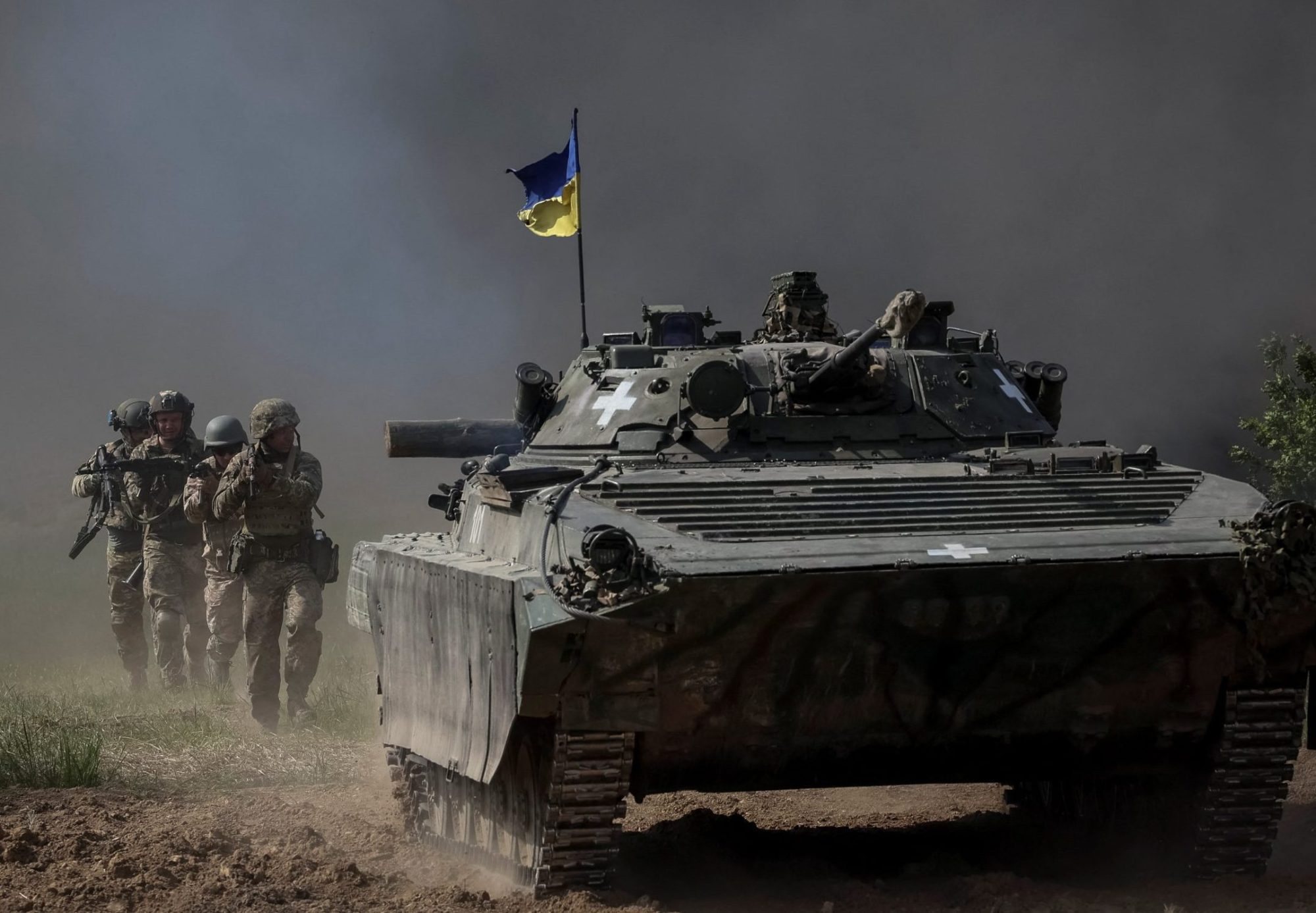
Prigozhin pointed to the social disparity underlined by the war, with the sons of the poor being sent back from the front in zinc coffins while the children of the elite “shook their arses” in the sun. “This divide can end as in 1917 with a revolution,” he said in an interview posted on his channel on the Telegram messaging app. “First the soldiers will stand up, and after that – their loved ones will rise up. There are already tens of thousands of them – relatives of those killed. And there will probably be hundreds of thousands – we cannot avoid that.”
“Putin is noticing that we are getting closer and closer to him, but he is also afraid of being killed by his own people,” Skibitsky was quoted as saying, describing the assassination of Putin as a top priority.
I had no expectation at all that the Ukrainians would be able to do what they have. I had no reason to disagree with the assessments that Ukraine would fall in a matter of weeks. Though it has been clear for a long time that Russian equipment was not on par with Western, I had more respect for it than it deserved. The same goes for the Russian fighting man and leadership. The ineptitude of the Russian military is surprising to an amazing level. The only advantage they retain is a vastly overwhelming numerical superiority in manpower and equipment. Will it be enough? I think the Ukrainians have the willpower and desire to stay in the fight as long as they have the capability to do so. It is more a question of Western willpower to continue to support them. It isn't cheap and pretty much most of the outdated and ex-Soviet stuff in inventories of NATO and allied nations have been donated. The stocks of equipment that these nations actually use is being drawn on and stressing the supply chains. In some cases, the production lines were shut down so new replacements will need to be found. It is a big price tag but it is one that has to be paid. It isn't even as much about Russia and Ukraine as it is China and Taiwan. China is watching. They need to see the US and allied nations standing firm and not wavering to support the Ukrainians. It sucks that Ukrainians and even Russians are dying but the support of this war to defeat Russia will directly either invite or dissuade another major war that could be even more dangerous for Americans and the world.So I just read back through the first page of this thread to regain my sense of how this got started.This is what is fascinating and concerning me. Are we really going to see one nation try to completely take over another?I'm aware that eastern Ukraine has a heavily Russian heritage, but it still seems somewhat surreal to think about a major power attacking another nation like this. I guess our world hasn't moved past that.
We haven't seen that since Iraq tried to take Kuwait. Ukraine is a lot bigger and more powerful than Kuwait was and I feel like the world will step in on Russia if they really try it. Maybe not WW3, but a lot bigger clash than we've seen in my 44 year lifetime. Maybe the Korean War would be a more apt comparison?
My post above where I thought it may become like the Korean War was off in the sense that we aren't sending any troops. We've made it a proxy war with Russia and closer to 1979 in Afghanistan than anything else.
I think we've all been a little surprised at how well the Ukrainians are doing (first page sentiment was that the Russians would just roll right through as far as they wanted to go). But I also don't have any illusions that the Ukraine is actually "winning" because they have lost cities and chunks of territory. A lot of men have died in this thing on both sides and it is still a tragic event that is ongoing.
Honestly, it feels like the war may as well be in outer space for all of the difference it is making in our everyday American lives. I desperately wanted to go on a trip to Poland to help construct emergency housing for refugees fleeing Ukraine last year, but just couldn't make it happen. As such, I would have lost track of things if it wasn't for the efforts of those posting in this thread, most noteably @themeistersinger @Don't Toews Me . So a big thank you to them.
Still praying for quick and peaceful end to this thing, although that prayer has gone unanswered so far.
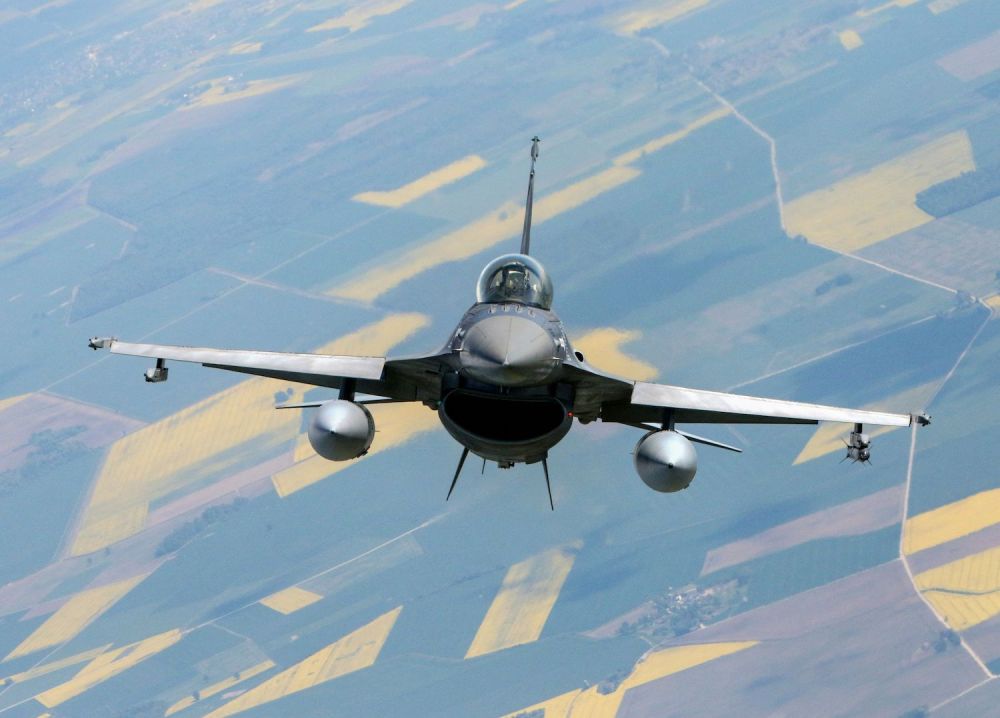
But the prospect of getting dozens of Ukrainian fighter pilots up to speed on the F-16 after three decades of operating Soviet-era aircraft presents a challenge for Britain, Belgium, the Netherlands, Norway, Denmark, and the United States, the six countries in charge of the international coalition. An experienced American fighter pilot with air-to-ground combat credentials can go to a short F-16 school for 12 to 16 check rides and be out in three months.
Ukraine hopes to send cadets that already have strong English-speaking skills to speed up the training, which will include work adapted from NATO’s “Introduction to Fighter Fundamentals” course, and will include simulators and actual training. An internal U.S. Air Force assessment first seen by Yahoo News said that Ukrainian fliers could complete training in four months, based on an evaluation of two Ukrainian pilots given a brief tuneup course on the F-16 and nearly 12 hours of simulator training in Arizona in late February and early March. Still, some experts expect Ukraine’s learning curve will be longer than usual.
With training resources limited, sending Ukrainian pilots through the pipeline also risks sending Western fighter pilot trainees to the back of the line in their home countries, said John Venable, a senior research fellow for defense policy at the conservative Heritage Foundation. European countries have fewer training squadrons than the United States and tend to train pilots within their operational unit.
Some European countries are ready to clear their clutter. The Netherlands, for instance, has a bunch of F-16s that it will be happy to sell as it moves to the U.S.-made F-35. Norway has a baker’s dozen.
Given the possible bottlenecks, Western officials have tamped down the idea that the F-16s, if and when delivered to Ukraine, would have an immediate effect in shifting the battlefield reality. Western airplanes can be less durable than Russian airframes in rough conditions, Venable said, which have bigger brakes and higher landing gears than their U.S.-made counterparts, and F-16s are also less able to take off from poorly prepared runways.
The Russian aircraft that Ukrainian pilots are used to can take unfiltered gasoline better than American fighters, too. Ukrainian fighter pilots could wreck a million-dollar engine if they’re not careful on landing and an F-16 hoovers a rock up into an intake valve. The cockpit doesn’t even look the same: Ukrainian pilots who have mastered MiG fighter jets will have to climb into an airplane with gauges and instruments that aren’t in the same places they’re used to.
“If you take somebody who’s not used to doing that and bring them into an airplane where the gauges are all in different places, just flying an instrument approach, in bad weather, you can take losses pretty significantly,” Venable said. “That’s not employing the airplane; that’s just taking off and landing in bad weather.”
But Ukrainian and Eastern European officials have already begun to war-game scenarios for employing Western fighters, from air defense to close air support—and even escorting grain-carrying ships through the Black Sea.
Russia and Belarus signed agreements formally advancing preparations to deploy Russian tactical nuclear weapons to Belarus as part of a longstanding effort to cement Russia’s de facto military control over Belarus, though Russia has not yet deployed nuclear weapons to Belarus and their possible deployment is highly unlikely to presage any Russian escalation. Russian Defense Minister Sergei Shoigu and Belarusian Defense Minister Viktor Khrenin signed documents on the deployment of Russian non-strategic (tactical) nuclear weapons to Belarusian territory during a meeting of defense ministers of the Collective Security Treaty Organization (CSTO) in Minsk, Belarus on May 25.[5] Shoigu emphasized that Russia would retain control of the tactical nuclear weapons in the event of their deployment to Belarus and claimed that Belarusian aircraft are now capable of carrying nuclear weapons.[6] Russian President Vladimir Putin previously announced on March 25 that Russia would deploy tactical nuclear weapons to Belarus by July 1, likely to renew tired information operations about the potential for nuclear escalation over the war in Ukraine.[7] Russia has long fielded nuclear weapons that are able to strike any target that tactical nuclear weapons launched from Belarus could also hit, and ISW continues to assess that Putin is extraordinarily unlikely to use nuclear weapons in Ukraine or elsewhere.[8] Shoigu also announced that Russian forces will deploy additional military contingents to Belarus to develop military infrastructure, expand joint combat training, and conduct reconnaissance activities near the borders of the Union State.[9] The deployment of tactical nuclear weapons to Belarus requires both significant military infrastructure and Russian command and control over elements of the Belarusian Armed Forces. The Kremlin likely intends to use these requirements to further subordinate the Belarusian security sphere under Russia.
In an effort to preserve brigades trained and equipped by the West for a widely anticipated offensive, and with many of its professional soldiers dead, Kyiv sent in mobilized soldiers and territorial defense units, sometimes with patchy training and equipment.
The ultimate success or failure of Ukraine’s strategy in Bakhmut will hinge on the results of the bigger offensive.
“If you can avoid having to divert your decisive combat force toward something like Bakhmut, which would have a long-term negative impact on the overall counteroffensive, then you do it,” said retired Lt. Gen. Ben Hodges, a former commander of the U.S. Army in Europe. “Of course you still pay a high price.”
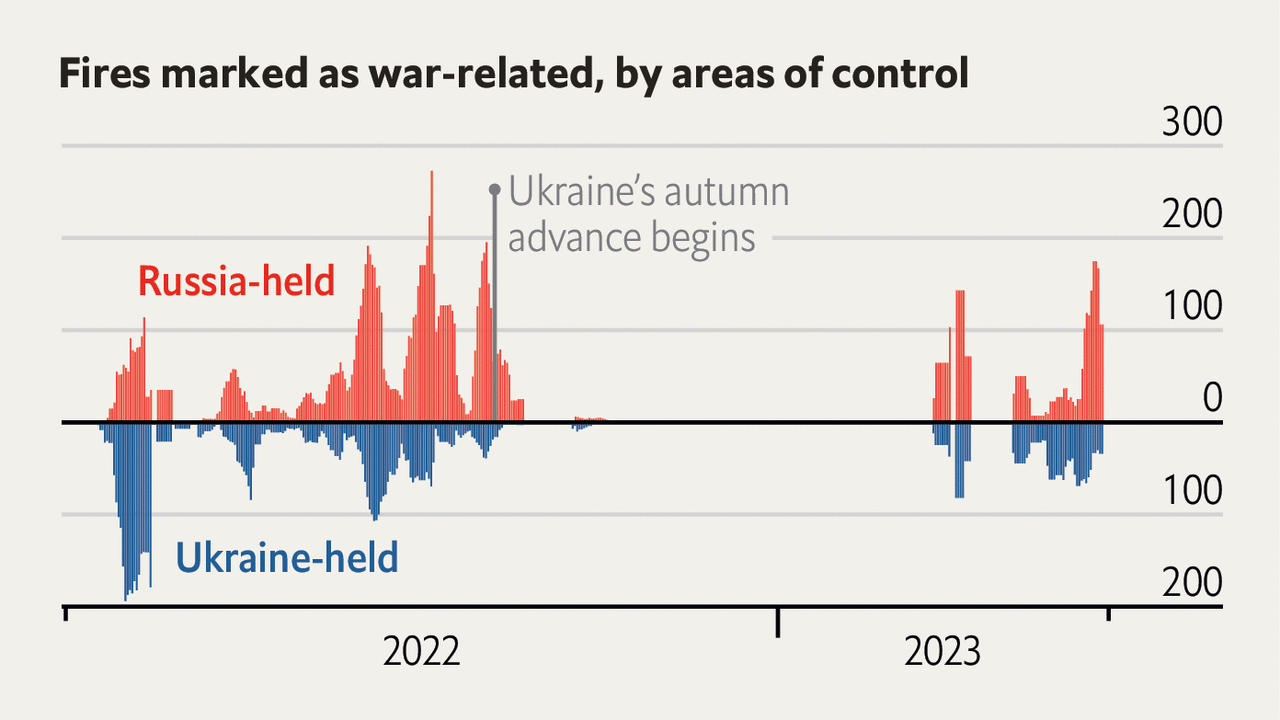
In the past two weeks our analysis of satellite data has detected 907 fires likely to be war-related in Russian-held territory in Ukraine. That’s more than four times as many as in the two weeks before. From Kharkiv to Kherson activity along the frontline, and apparent strikes on the Russian rear, are picking up. The last time something like this happened, last autumn, it preceded Ukraine’s impressive gains in the south.
The latest reading, on May 25th, shows a spike in high-temperature events in Russian-held areas (we use maps produced by the Institute for the Study of War, a think-tank, to assess areas of control). Whether this really is the beginning of the much-touted counter-offensive is not easy to say. Such an operation is only readily observed if it succeeds, or fails spectacularly. Our data do not yet suggest a large Ukrainian advance, or gains of territory. Rather, they are consistent with a force laying the groundwork for that to happen. Ukraine appears to be probing defences for weaknesses, and, by striking command posts and logistics far behind the front line, reducing the ability of Russia’s forces to plug gaps.
The uptick in the number of fires began on May 11th. There is reason to believe that on the same day Ukraine began using Storm Shadow missiles, long-range weapons capable of striking fortified positions, which were sent by Britain. The average number of fires marked as war-related in Russian-held areas is currently at the highest since August 2nd 2022—more than 100 per day. (These totals are only a guide to activity: the satellites cannot register all fires and larger ones may sometimes be recorded as multiple smaller ones.)
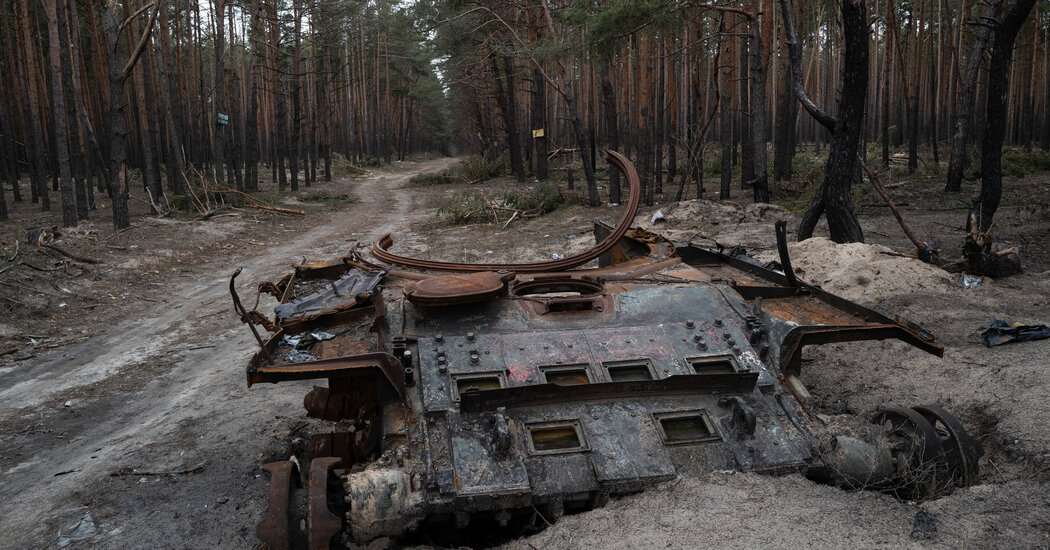
Public sentiment in Russia over war casualties has been turning more negative during the intense fighting in recent months in eastern Ukraine, according to a new analysis.
U.S. officials have highlighted the huge numbers of Russian troops killed and wounded in Bakhmut, Ukraine, in recent months, which they estimate to be more than 100,000. The city has become the scene of the most intense urban combat in Europe since World War II.
Those losses appear to be affecting public opinion. FilterLabs AI, which uses messages on the Telegram app, posts on social media and discussions on internet forums to track Russian public sentiment on a range of topics, has found that views on war casualties have become increasingly negative since late February.
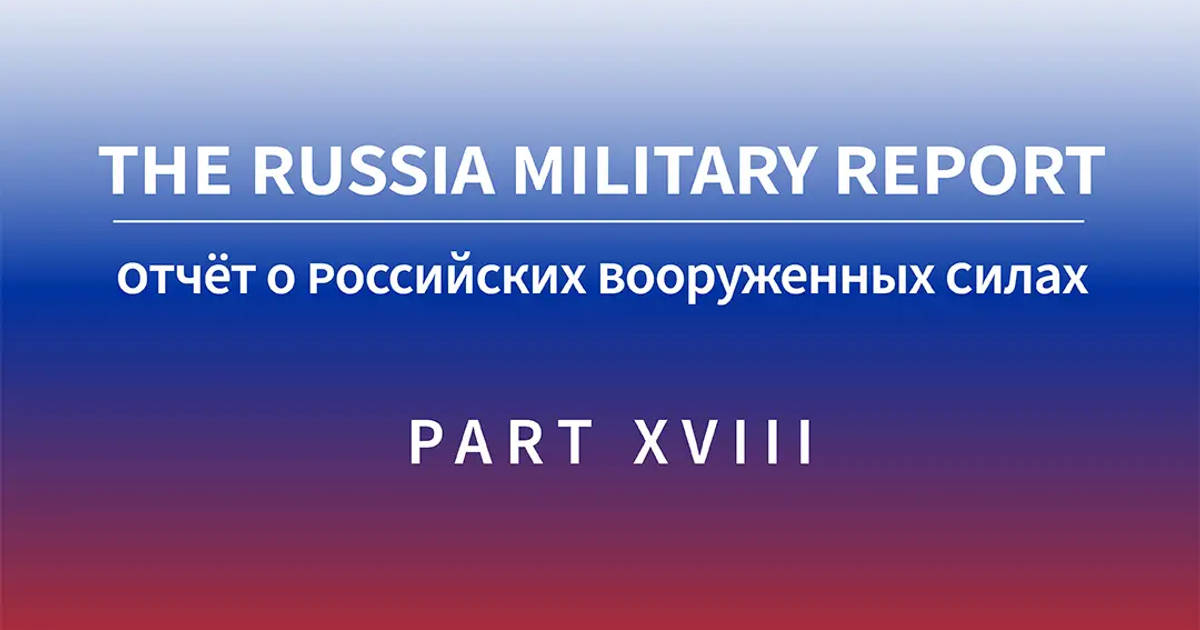
The recent disclosure of Russian naval activity in the vicinity of key maritime infrastructure in the North Sea including cables, windfarms and pipelines should not necessarily come as a surprise. Russia has spent a considerable amount of effort investing in capabilities that would allow it to pose a threat to European critical infrastructure, and has viewed this as an imperative since the Soviet era. An emphasis on demonstrating the ability to target economically vital assets can be found in Russian thinking on escalation management, which presumes – correctly or otherwise – that the ability to inflict economic harm represents a means of containing local conflicts on Russia’s periphery by deterring external intervention. In a conflict with NATO, damage to infrastructure at sea along with the targeting of infrastructure ashore would be a key part of Russia’s overall war effort, aimed at gradually eroding popular support in the West. This article will examine some of the tools at Russia’s disposal for the prosecution of a campaign against European infrastructure at sea, the organisational structures that manage them, and the ways in which the threats they pose can be mitigated.
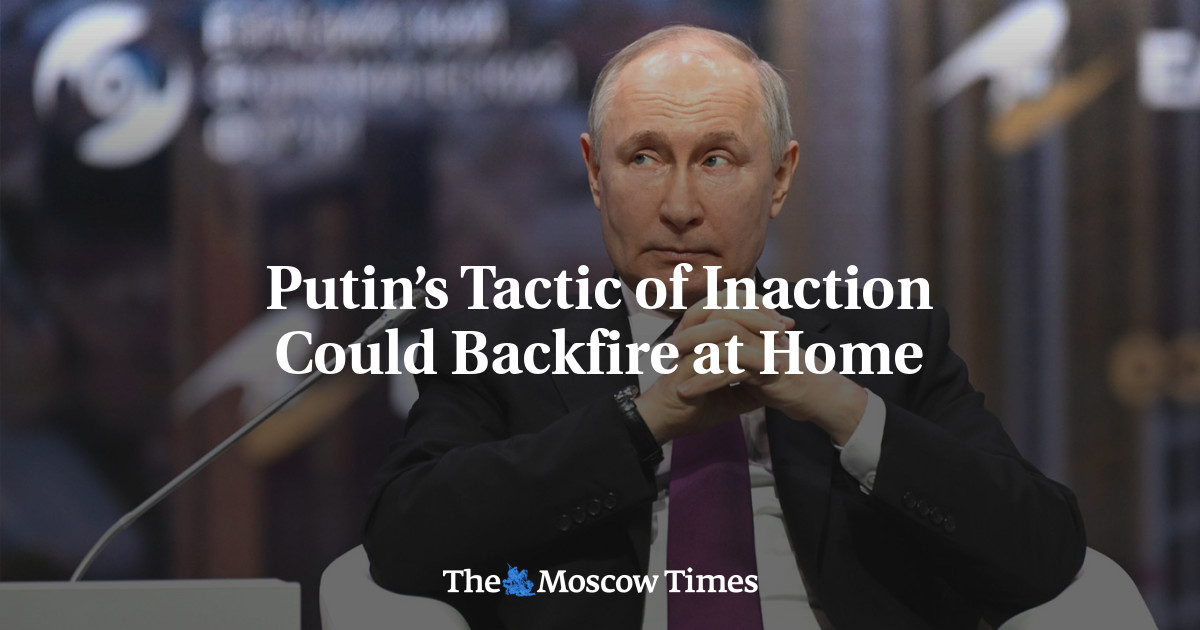
Because war has nothing to do with politics.Keep this non political if it's going to survive.
Because war has nothing to do with politics.Keep this non political if it's going to survive.
Sure, it can stick to news/updates and that is about it. Any serious analysis or discussion can not avoid discussion about the politics of war and even more so about this particular war as the politics of it will determine the outcome just as much as the actual fighting will.Because war has nothing to do with politics.Keep this non political if it's going to survive.
I don't know what got moderated, but a thread about a war can stick to relevant news/updates without devolving into politics.
Very under rated movie imo. Where did ended up in top movies of the 80s?Red Dawn is on tv. Watching it now it seems more plausible.... not the part of the Russians mounting an invasion but more of the small group of teenagers destroying a large contingent of Russian and Cuban troops.
Wolverines!!!
(the original, not the remake crap)
Red Dawn is on tv. Watching it now it seems more plausible.... not the part of the Russians mounting an invasion but more of the small group of teenagers destroying a large contingent of Russian and Cuban troops.
Wolverines!!!
(the original, not the remake crap)
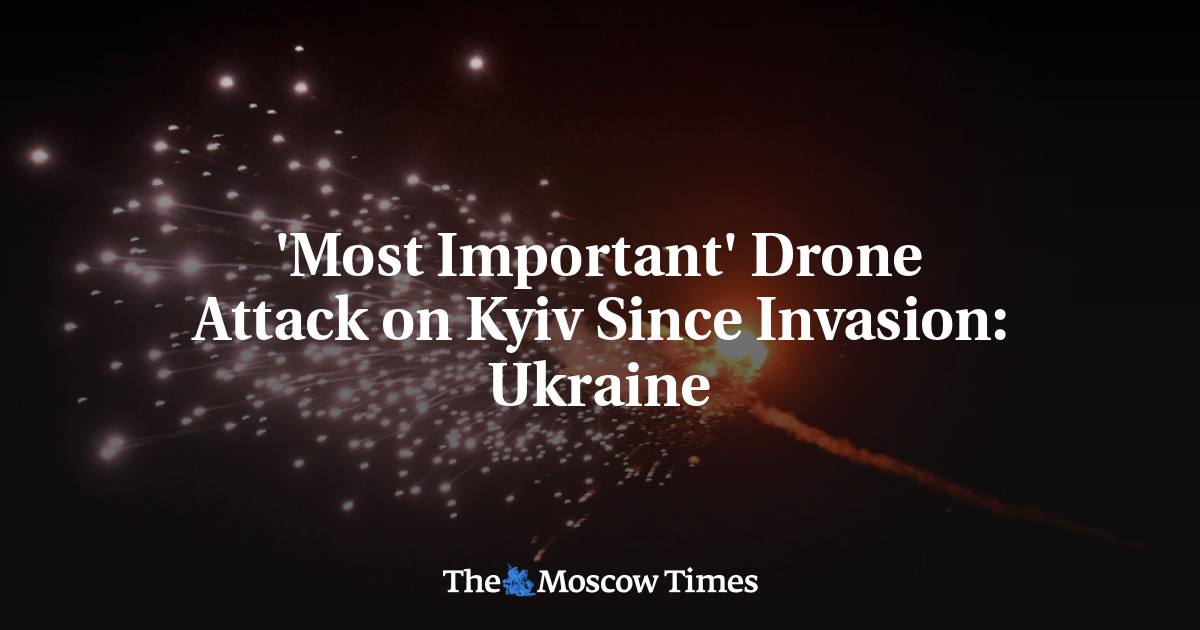
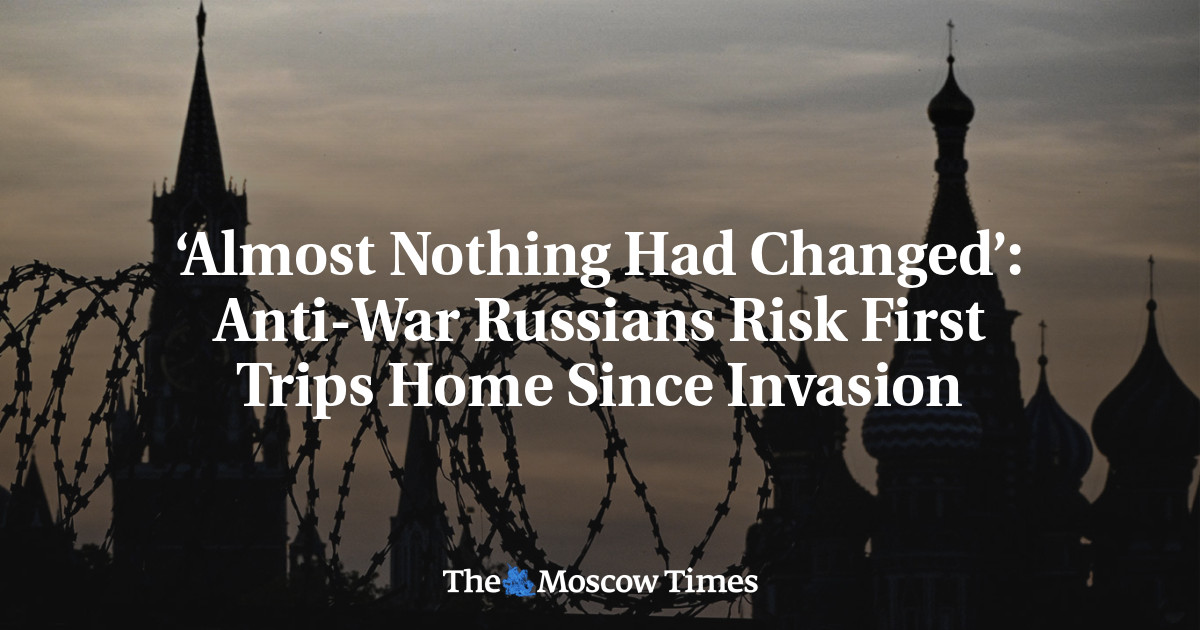
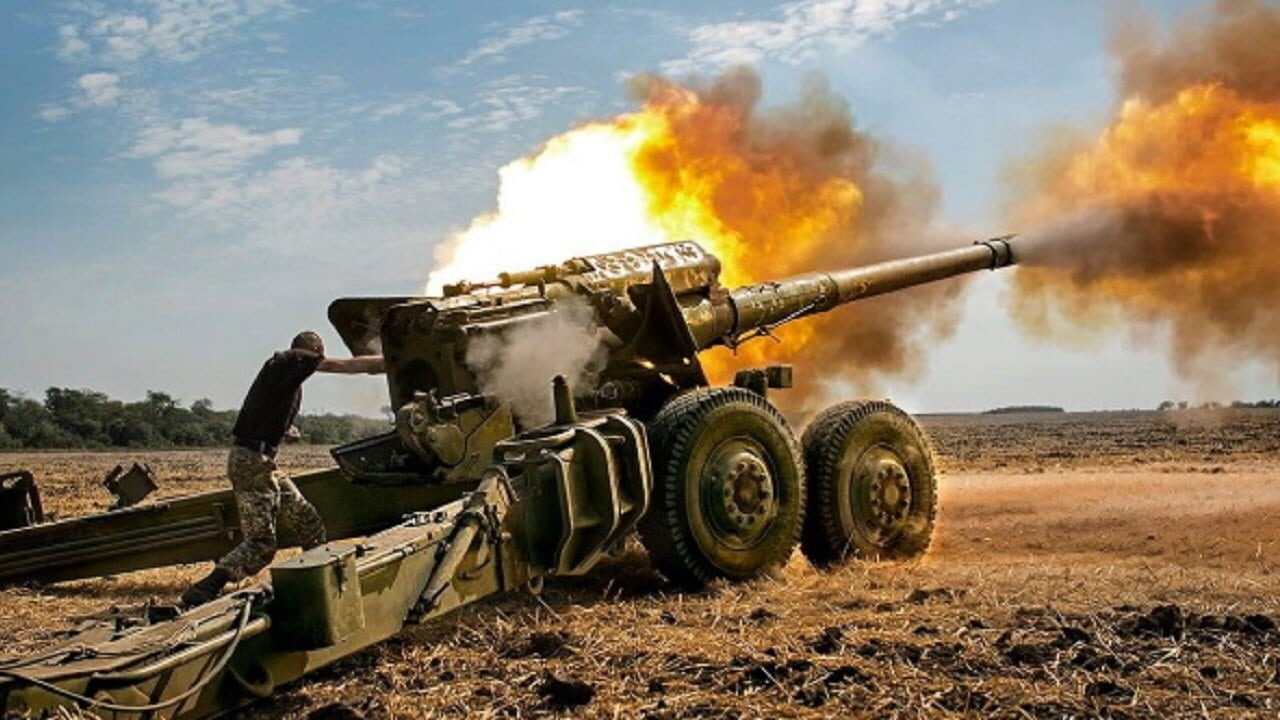
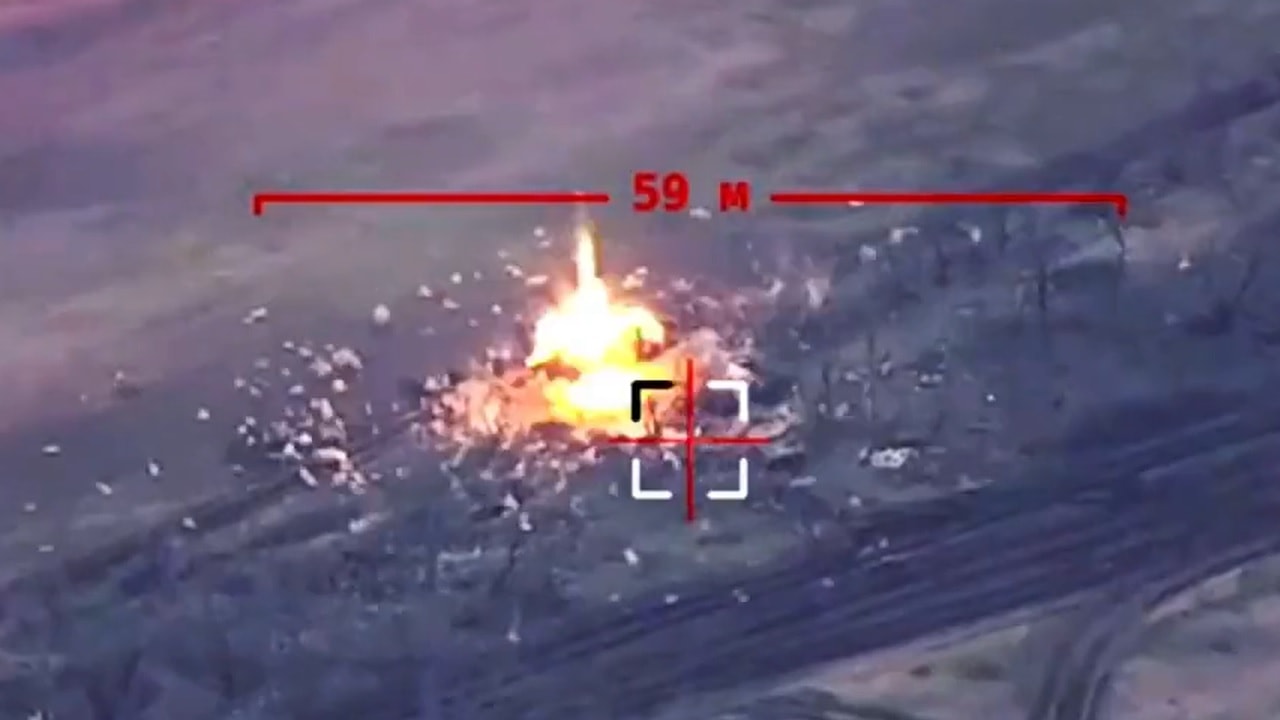
Girkin accuses Prigozhin of preparing for a coup in Russia. He says the insults towards the Russian army by Putin's cook are unacceptable, and signal a rift in the elites which Prigozhin will take advantage of with his private army that is being withdrawn from Bakhmut. Girkin adds that if Russia misses the upcoming counter-offensive, the political situation in the country may become unrecongisable by the end of summer. Watch an excerpt from a longer video posted today.

By contrast, the smaller, scrappier GUR has come into its own. Its leader, Major General Kyrylo Budanov, is a former officer in Ukraine’s own Spetsnaz (unlike his Russian counterpart, Admiral Igor Kostyukov, who was a naval intelligence analyst), who was wounded three times fighting in the Donbas. Zelensky appears to have given him free rein to stir up trouble in Russia, to torment the Kremlin and to make ordinary Russians fear that the war is coming home to them.
Budanov has a reputation as a ruthless, effective and imaginative operator, and much the same could be said of GUR as a whole. Although there is some evidence of domestic anti-war activism in Russia, Ukrainian military intelligence seems to be behind most recent sabotage attacks in the country. Lacking an extensive network of agents behind enemy lines, it has turned to unexpected new forms of recruitment. Hackers ransack the bank accounts of Russian pensioners who are then blackmailed into firebombing draft offices. Russian teenagers — who claim not to know who is paying them — are hired through social media to set light to railway junction boxes for money.
Some of the GUR’s most spectacular coups have been executed by people who apparently had no idea that they were carrying out a mission. The haulier who drove a truck full of explosives onto the Kerch bridge in October did not seem to know what he was carrying (he died in the explosion), while the Russian woman who handed an ultra-nationalist blogger a bust that exploded and killed him in St Petersburg was apparently unaware that she was passing on a bomb. A British intelligence officer who has worked with GUR called the agency “Ukraine’s Mossad”, likening it to Israeli intelligence in that “when they go after a target, they really will do whatever it takes”.
From the edges of Kostyantynivka, about 12 miles west of Bakhmut, which Russia captured a week ago, soldiers from Ukraine’s 24th Separate Assault Battalion pounded enemy trenches on the city’s southern flank with artillery fired from an old Soviet D30 howitzer on Saturday.
It was not so different from what they have been doing for weeks. But soldiers here cited one big change.
“The Wagner guys have left and the [regular Russians] have come in,” said a 26-year-old commander who asked to be identified by his call sign, Chichen. He used an anti-Russian ethnic slur to refer to the troops who appear to be replacing the mercenaries, including convicts recruited directly from prisons, who led Russia’s months-long onslaught.
If confirmed, the rotation of forces would mark a major shift, making units under the Russian military’s regular command responsible for holding the city — and allowing Wagner leader Yevgeniy Prigozhin to pull away after claiming to have achieved the only big territorial gain for the Kremlin since last summer.
Moving regular Russian units to defend Bakhmut could create vulnerabilities at other locations along the front, which stretches hundreds of miles — weaknesses that Ukraine might try to exploit as it seeks to snatch back occupied territory in a counteroffensive that could begin at any moment.
Soldiers with the 24th Separate Assault Battalion said they had seen that Wagner fighters had withdrawn and were replaced by regular Russian troops in the areas they were targeting, but emphasized that they could not know for sure if this was a permanent shift, or happening elsewhere.
“Knowing that Wagner is not a fair player, I won’t believe them until we see what the captured [Russian] soldiers are saying,” said a 26-year-old drone operator who asked to be referred to by his nickname, Chuck, for security reasons.
Chuck said he was hopeful that Wagner forces, who adopted unorthodox strategies that they found hard to deal with, would leave. “Fighting with regular Russian forces is not as hard as fighting with Wagner,” he said.
Chichen said it was easier to target regular Russian troops.
“It’s interesting because the Wagner guys were sitting back in their little bunkers not coming out,” he said. “Whereas the Russians, they’re young, they’re fresh, they’re new, and they basically just walk out. Then we give them hell.”
The soldiers said they remained perplexed by Wagner’s moves, noting that Prigozhin had threatened to withdraw from the Bakhmut in the past. Chichen said the mercenaries’ unusual tactics included remaining in hideouts until after a Ukrainian advance, so they could then attack from behind.
“Around them would be dead bodies, weapons. It looked like the position was abandoned. But then when you come closer, they come out of the hole and shoot you in the back,” said Chichen, who compared the tactic to those used by guerrilla communist forces in the Vietnam War.
The strategy resulted in heavy losses for Wagner, which has seen at least 10,000 killed in action in Bakhmut, according to recent U.S. estimates.
But it allowed the Russian side to make slow advances, steadily pushing Ukraine to the southwestern edge of the city.

The Russian military command may be transferring Donetsk People’s Republic’s (DNR) forces to relieve Wagner Group forces in Bakhmut city. The UK Ministry of Defense (MoD) assessed that the Donetsk People’s Republic (DNR) forces have likely entered Bakhmut city as of May 24 and begun clearing operations.[8] ISW previously observed elements of the 132nd Separate Guard Motorized Rifle Brigade of the DNR’s 1st Army Corps operating in the Bakhmut direction after previously fighting in the Avdiivka area.[9] It is unclear at this time if elements of the 132nd Brigade are operating inside of the city, but DNR Head Denis Pushilin previously raised the DNR flag in Bakhmut - which likely indicates that the DNR forces are assuming control over Bakhmut.[10] Pushilin also indicated that DNR elements were clearing the city as of May 23.[11]
The Russian transfer of DNR elements to Bakhmut may decrease the tempo of Russian offensive operations on the Avdiivka-Donetsk City line. ISW previously assessed that the Russian military command has heavily committed a variety of DNR elements to the Avdiivka-Donetsk City frontline.[12] Russian attacks around Avdiivka-Donetsk City area appear to have been decreasing in recent days, which may be connected to the transfer of DNR forces to Bakhmut. The Ukrainian General Staff reported on May 27 that Russian forces conducted 13 combat operations in eastern Ukraine, of which seven attacks were in the Marinka area (about 19km west from Donetsk City).[13] The Ukrainian General Staff previously reported that Russian forces attacked 20 times in Marinka alone on the day Wagner forces declared victory over Bakhmut on May 20.[14] The Russian offensives around Avdiivka have been steadily decreasing since at least April 8 after the Russian military command attempted to intensify offensive operations near the settlement in mid-March, and the transfer of DNR units to Bakhmut may further slow Russian efforts on the Avdiivka-Donetsk City frontline.[15] The Russian military command may be transferring DNR units operating in the well-defended Avdiivka-Donetsk City area to avoid making other directions vulnerable or to ensure quick reinforcements for Bakhmut city.
The Kremlin has established a pattern in this information operation in which some Russian officials express feigned interest in negotiations while other Russian officials simultaneously reiterate Putin’s maximalist goals for the war in Ukraine.[28] Russian Deputy Foreign Minister Mikhail Galuzin stated on May 26 that the conditions for a ”comprehensive, just and lasting peace” in Ukraine include the cessation of hostilities by Ukrainian forces, the end of Western security assistance to Ukraine, the Ukrainian return to a “neutral non-aligned status,” the explicit Ukrainian refusal to join NATO and the EU, and the recognition of Russia’s annexation of occupied territories in Ukraine.[29] Galuzin’s reiteration of Russia’s maximalist objectives coincide with Putin’s alleged expression of Russian interest in negotiations during a phone call with Brazilian President Luiz Inacio Lula de Silva on May 26.[30]
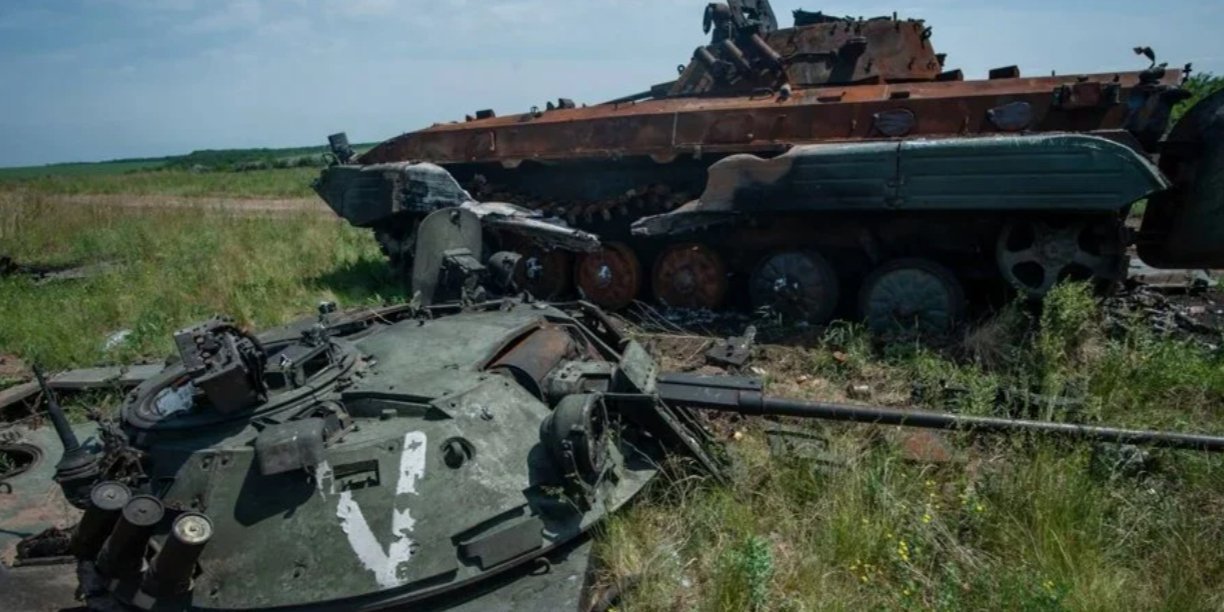
It seems like a joke when you first read it, but if Wagner turned how many Russians would step up to save Putin?@schnoogsl
2021: Second best army in the world
2022: Second best army in Ukraine
2024ff: Second best army in Russia
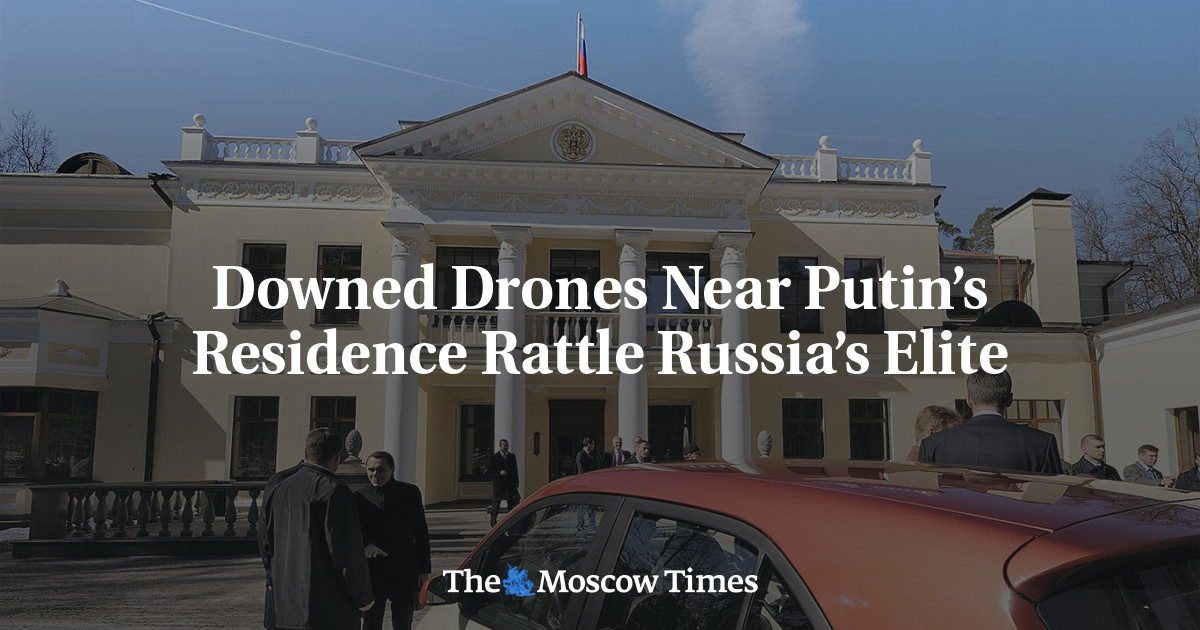
Keep in mind... these numbers are only adding those confirmed with picture or video evidence. So, the actual numbers are higher and likely somewhere between the 3K that Ukraine says and the 2K listed here. Russia started the war with around 3K operational tanks. They do have about 4K in storage though which they are dipping into an trying to use but many of those are in poor condition and most (all?) are older Soviet era tanks.
Russia loses 2,000 tanks in Ukraine – Oryx data
Visually confirmed Russian tank losses in Ukraine are now at 2,002 vehicles, open-source intelligence project Oryx said in a report on May 29. At the same time, the Ukrainian military estimates that Moscow has lost 3,801 tanks in the war.english.nv.ua
